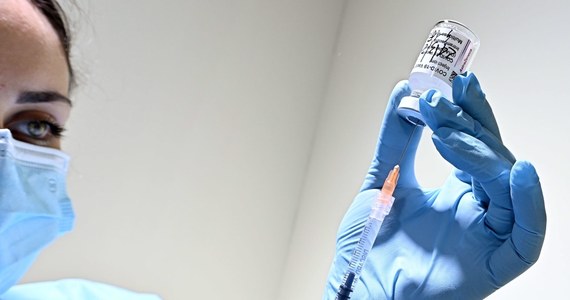–
/ALESSANDRO DI MARCO /PAP / EPA
As RMF FM correspondent Katarzyna Szymańska-Borginon points out, from the moment when the European Commission introduced a mechanism to control the export of vaccines against Covid-19 at the end of January, she had blocked such a delivery only once – it was about 250,000 doses to Australia – a has issued 380 permits.
Until now, the main criterion for issuing a vaccine export license was the manufacturer’s compliance with the contract with the European Union. It turned out, however, that the Swedish-British AstraZeneca, which does not fulfill the contract (it only delivered a quarter of the promised doses to EU countries), exports less outside the EU than other companies, such as the American companies Pfizer and Moderna.
Now Brussels’s approach is about to change: The European Commission has tightened the criteria for issuing a vaccine export license.
The new criteria for issuing export permits will be reciprocity and proportionality.
This means that if a country has a high percentage of vaccinated, and it blocks the export of vaccines to the EU, then can expect retaliation.
Therefore, countries such as Great Britain, which have a higher percentage of vaccinated people than the EU, but block the export of preparations to EU countries, are in the target of Brussels.
For example: the EU has sent 10 million vaccines produced in its territory to Great Britain, while not a single dose has yet been sent to the EU from the UK.
Covid-19 Vaccine Export and the Question to what extent the European Union can afford a vaccine war – that is, a real, systematic blocking of exports – will be the subject of tomorrow’s EU summit.
It is being considered – and it is allowed by the more stringent criteria adopted today – to block exports to, for example, the United Kingdom even vaccine companies that live up to their commitments to the EU – like the Pfizer / BioNTech consortium.
The topic is not easy. For example, Belgium does not agree to blocking Pfizer’s exports, on whose territory – in the city of Puurs – the company’s main factory is located. Belgium fears that the vaccine war could have a negative impact on the concern: because, for example, Great Britain could in retaliation, block supplies of ingredients needed to make vaccines Pfizera.
This is an important aspect: in the production of vaccines we are dealing with a global supply chain and blocking one element may lead to blockage of another.
–

